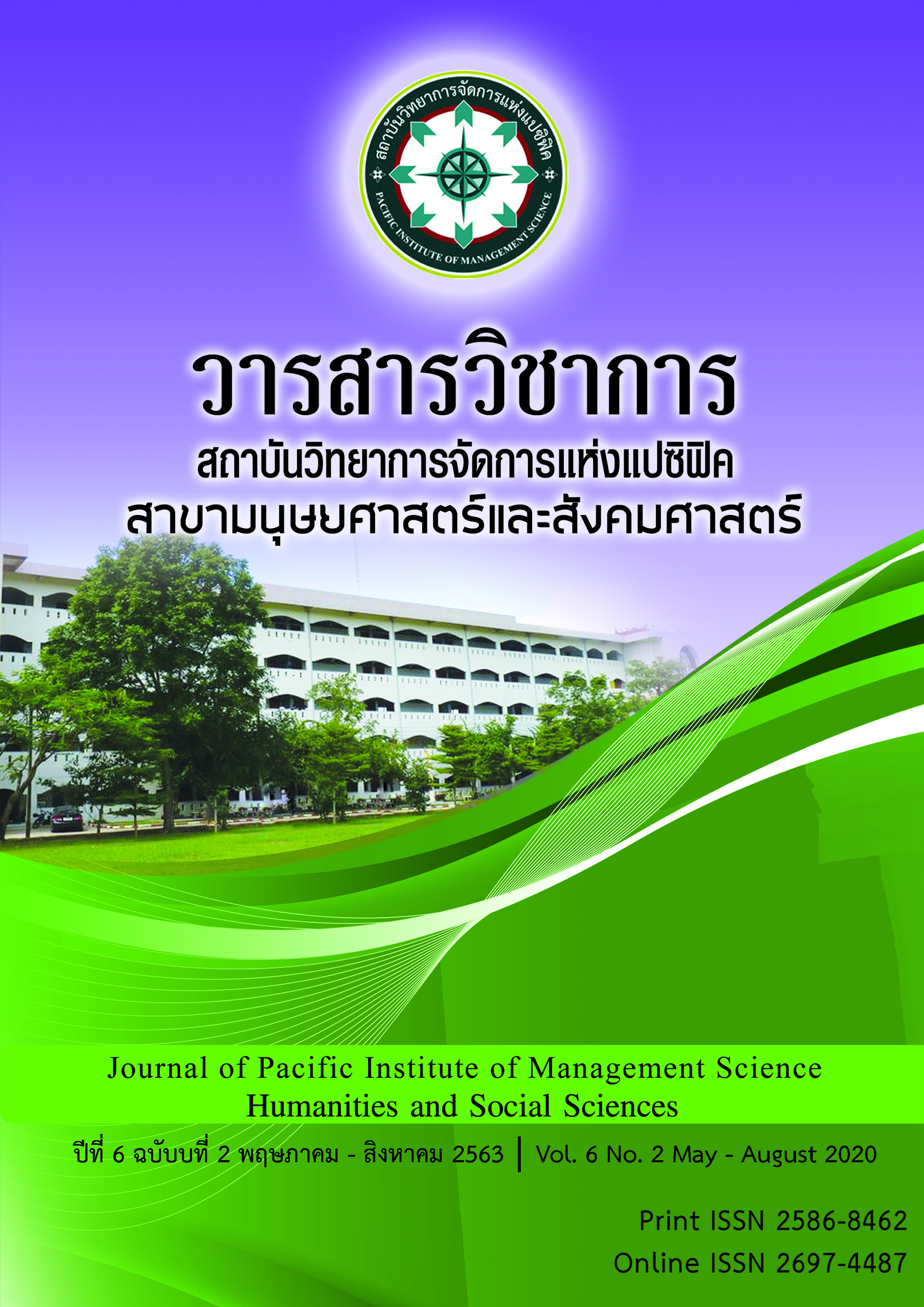Assessment of Transparency of Websites and Electronic Data Resource Centers of Municipalities in Thailand.
Keywords:
Information, Transparency, Municipality, InfocenterAbstract
This research had the objective to conduct an assessment of transparency of 30 websites and Infocenter of municipalities in Thailand. Data were collected by a questionnaire-based survey, and municipalities were ranked by level of transparency.
This study found that most of the municipalities make their data and information available to the public via their website on the Internet. The most common data or information that is available include details of procurement and contracting (86%). The information that is least likely to be made public is details of management and human resources (65%). The municipality with the highest score for website transparency was Nakorn Ratchasima (87.5 points), whereas the municipality with the lowest score for website transparency was Nakorn Pathom (17.5 points). Of the 30 municipalities, 22 had Infocenter. There is still limited transparency of the data in those databases. The municipalities with the highest score for its Infocenter were Phuket and Songkhla (82 points), while municipalities of Pitsanuloke, Phrayasurasak, and Nakorn Ratchasima scored 0.
Based on the findings of this research, the author recommends that all municipalities should give more importance to posting open data on their websites and through their Infocenter. This may require recruiting additional staff with the required expertise and in-service training of existing staff. In addition, the data of the municipality should be complete and accessible in a convenient way, for example, by creating applications which can be used with a smart phone or tablet computer, since these devices are ubiquitous in urban Thailand.
References
ครูไทย. (2537). สิทธิในการรับรู้ของประชาชน. วิทยาจารย์, 92(4), 15-16.
ชัยอนันต์ สมุทวณิช. (2541). Good Governance กับการปฏิรูปการศึกษา - การปฏิรูป การเมือง. ม.ป.พ., 2541.
ทศพร ศิริสัมพันธ์. (2550). ธรรมาภิบาล (สัมภาษณ์). เลขาธิการ ก.พ.ร. สำนักงานคณะกรรมการพัฒนาระบบราชการ (ก.พ.ร.); 14 พฤษภาคม 2551. [ม.ป.ท.: ม.ป.พ.]
ธีรยุทธ บุญมี. (2541). ธรรมรัฐแห่งชาติ ยุทธศาสตร์กู้หายนะประเทศไทย. กรุงเทพฯ: สำนักพิมพ์สายธาร.
บุษบง ชัยเจริญวัฒนะ และ บุญมี ลี้. (2544). ตัวชี้วัดธรรมาภิบาล. กรุงเทพฯ: สถาบัน พระปกเกล้า.
ประเวศ วะสี. (2542). ยุทธศาสตร์ชาติ. กรุงเทพฯ: สำนักงานกองทุนเพื่อสังคมธนาคารออมสิน.
ภาสประภา ตระกูลอินทร์. (2550). สังคมไทยกับความโปร่งใสของการเปิดเผยข้อมูลจากภาครัฐ. วารสารนักบริหาร, 27(3), 29-31.
ภูริตา จันทรักษ์. (2561). การประเมินความโปร่งใสของเว็บไซต์องค์การบริหารส่วนจังหวัด. (การศึกษาอิสระปริญญารัฐประศาสนศาตรมหาบัณฑิต, มหาวิทยาลัยขอนแก่น).
โภคิน พลกุล. (2538). หลักกฎหมายมหาชน. กรุงเทพฯ: มหาวิทยาลัยรามคำแหง.
วัชรา ไชยสาร. (2544). สิทธิรับรู้ข้อมูลข่าวสารของราชการ. ครั้งที่ 2 . กรุงเทพ: นิติธรรม
วิภาส ทองสุทธิ์. (2551). การบริหารจัดการที่ดี. กรุงเทพฯ: อินทภาษ.
ศุภกร ฉายถวิล. (2561). การประเมินความโปร่งใสของเว็บไซต์เทศบาลในประเทศไทย. (วิทยานิพนธ์ปริญญารัฐประศาสนศาตรมหาบัณฑิต, มหาวิทยาลัยขอนแก่น).
สมคิด เลิศไพฑูรย์, นคร เสรีรักษ์ และ ภรณี ดีราษฎร์วิเศษ. (2556). ท้องถิ่นโปร่งใส การพัฒนาตัวชี้วัดเพื่อประเมินประสิทธิภาพในการเปิดเผยข้อมูลข่าวสารขององค์กรปกครองส่วนท้องถิ่น. กรุงเทพฯ: มหาวิทยาลัยธรรมศาสตร์
สมศักดิ์ สามัคคีธรรม. (2561). ธรรมาภิบาลและความรับผิดชอบทางสังคม. กรุงเทพฯ สถาบันบัณฑิตพัฒนบริหารศาสตร์.
สำนักงานคณะกรรมการข้อมูลข่าวสารของราชการ. (2548). คู่มือการปฏิบัติงานตามพระราชบัญญัติข้อมูลข่าวสารของราชการ พ.ศ. 2540 ของเจ้าหน้าที่ของรัฐ. กรุงเทพฯ: สำนักงานคณะกรรมการข้อมูลข่าวสารของราชการ.
อานันท์ ปันยารชุน. (2542). มุมมองนายอานันท์. กรุงเทพฯ: มติชน.
Agere Sam. (2545). ธรรมาภิบาล การบริหาร การปกครองที่โปร่งใสด้วยจริยธรรม. กรุงเทพฯ: น้ำฝน.
Downloads
Published
Issue
Section
License
บทความที่ได้รับการตีพิมพ์เป็นลิขสิทธิ์ของ สถาบันวิทยาการจัดการแห่งแปซิฟิค
ข้อความที่ปรากฏในบทความแต่ละเรื่องในวารสารวิชาการเล่มนี้เป็นความคิดเห็นส่วนตัวของผู้เขียนแต่ละท่านไม่เกี่ยวข้องกับสถาบันวิทยาการจัดการแห่งแปซิฟิค และคณาจารย์ท่านอื่นๆในสถาบันฯ แต่อย่างใด ความรับผิดชอบองค์ประกอบทั้งหมดของบทความแต่ละเรื่องเป็นของผู้เขียนแต่ละท่าน หากมีความผิดพลาดใดๆ ผู้เขียนแต่ละท่านจะรับผิดชอบบทความของตนเองแต่ผู้เดียว







